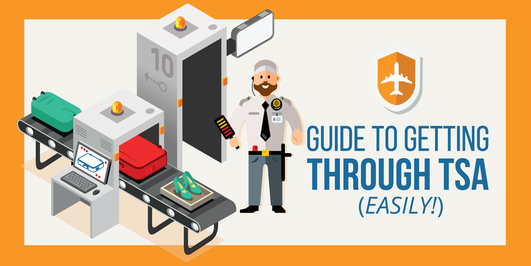KNOW BEFORE YOU GO!
Traveling with ADNPkids
TSA Cares Passenger Support
You may not know this, but there is an amazing program called TSA Cares Passenger Support. They have a dedicated helpline that helps coordinate assistance through checkpoint screening which includes having a TSA Officer who have received advanced training on helping passengers with disability, medical, or other circumstances, give assistance through the screening checkpoint.
The level of service will vary based on the airport’s resources. Some airports may have the resources to call or email you ahead of time to coordinate a meeting point and others may simply notify the checkpoint of your estimated arrival based on your departure time. You may always request to speak with a Passenger Support Specialist (PSS) or a supervisor when you arrive at the checkpoint.
If you believe you would benefit from this service, please call TSA Cares at least 72-hours in advance of travel. We will collect your travel dates, flight information, and the type of assistance needed, and forward the information to the airport. If you are unable to provide 72-hour notice, you may request to speak with a PSS or supervisor for assistance at the checkpoint.
You may contact TSA Cares at (855) 787-2227, Federal Relay 711, between 8 a.m. and 11 p.m. (ET) Monday through Friday, or between 9 a.m. and 8 p.m. (ET) on weekends and holidays or by email at TSA[email protected].
If you need in-flight assistance or wheelchair assistance from the curb to the flight, please contact your airline before traveling. Airlines will generally work with you to try to meet your particular needs. TSA does not provide or coordinate wheelchair assistance.
Also, when traveling, ask at the entrance to the security check if they have a line designated disability line. Many airports have this service with or without using the TSA Cares program. You only have to tell them that your child has a disablity that causes him to have behavior challenges when standing in long lines. Additionally, the PSS person that I spoke to said in ANY airport, you can simply as to talk to the TSA supervisor, they are all trained to help in situations like this and she said that this is something they really want families to realize they can do. If the airport or checkpoint does not have a line set aside for passengers with disabilities and families, or if you prefer not to use it, you may request to be moved to the front of any security line. TSA Officers and airport and airline personnel should honor your requests to move to the front of the line with your traveling companions if you notify the personnel that you have difficulty standing or waiting due to any type of disability or medical condition.
For more information about traveling with a disability or medical condition or to learn about our TSA Cares program, please visit https://www.tsa.gov/travel/passenger-support or visit www.tsa.gov/travel/special-procedures
Disabilities and Medical Conditions | Transportation Security Administration - tsa.gov
To ensure your security, all travelers are required to undergo screening at the checkpoint. You or your traveling companion may consult the TSA officer about the best way to relieve any concerns during the screening process.
www.tsa.gov
You may always ask to speak to a supervisor at any time during the screening process.
The level of service will vary based on the airport’s resources. Some airports may have the resources to call or email you ahead of time to coordinate a meeting point and others may simply notify the checkpoint of your estimated arrival based on your departure time. You may always request to speak with a Passenger Support Specialist (PSS) or a supervisor when you arrive at the checkpoint.
If you believe you would benefit from this service, please call TSA Cares at least 72-hours in advance of travel. We will collect your travel dates, flight information, and the type of assistance needed, and forward the information to the airport. If you are unable to provide 72-hour notice, you may request to speak with a PSS or supervisor for assistance at the checkpoint.
You may contact TSA Cares at (855) 787-2227, Federal Relay 711, between 8 a.m. and 11 p.m. (ET) Monday through Friday, or between 9 a.m. and 8 p.m. (ET) on weekends and holidays or by email at TSA[email protected].
If you need in-flight assistance or wheelchair assistance from the curb to the flight, please contact your airline before traveling. Airlines will generally work with you to try to meet your particular needs. TSA does not provide or coordinate wheelchair assistance.
Also, when traveling, ask at the entrance to the security check if they have a line designated disability line. Many airports have this service with or without using the TSA Cares program. You only have to tell them that your child has a disablity that causes him to have behavior challenges when standing in long lines. Additionally, the PSS person that I spoke to said in ANY airport, you can simply as to talk to the TSA supervisor, they are all trained to help in situations like this and she said that this is something they really want families to realize they can do. If the airport or checkpoint does not have a line set aside for passengers with disabilities and families, or if you prefer not to use it, you may request to be moved to the front of any security line. TSA Officers and airport and airline personnel should honor your requests to move to the front of the line with your traveling companions if you notify the personnel that you have difficulty standing or waiting due to any type of disability or medical condition.
For more information about traveling with a disability or medical condition or to learn about our TSA Cares program, please visit https://www.tsa.gov/travel/passenger-support or visit www.tsa.gov/travel/special-procedures
Disabilities and Medical Conditions | Transportation Security Administration - tsa.gov
To ensure your security, all travelers are required to undergo screening at the checkpoint. You or your traveling companion may consult the TSA officer about the best way to relieve any concerns during the screening process.
www.tsa.gov
You may always ask to speak to a supervisor at any time during the screening process.


